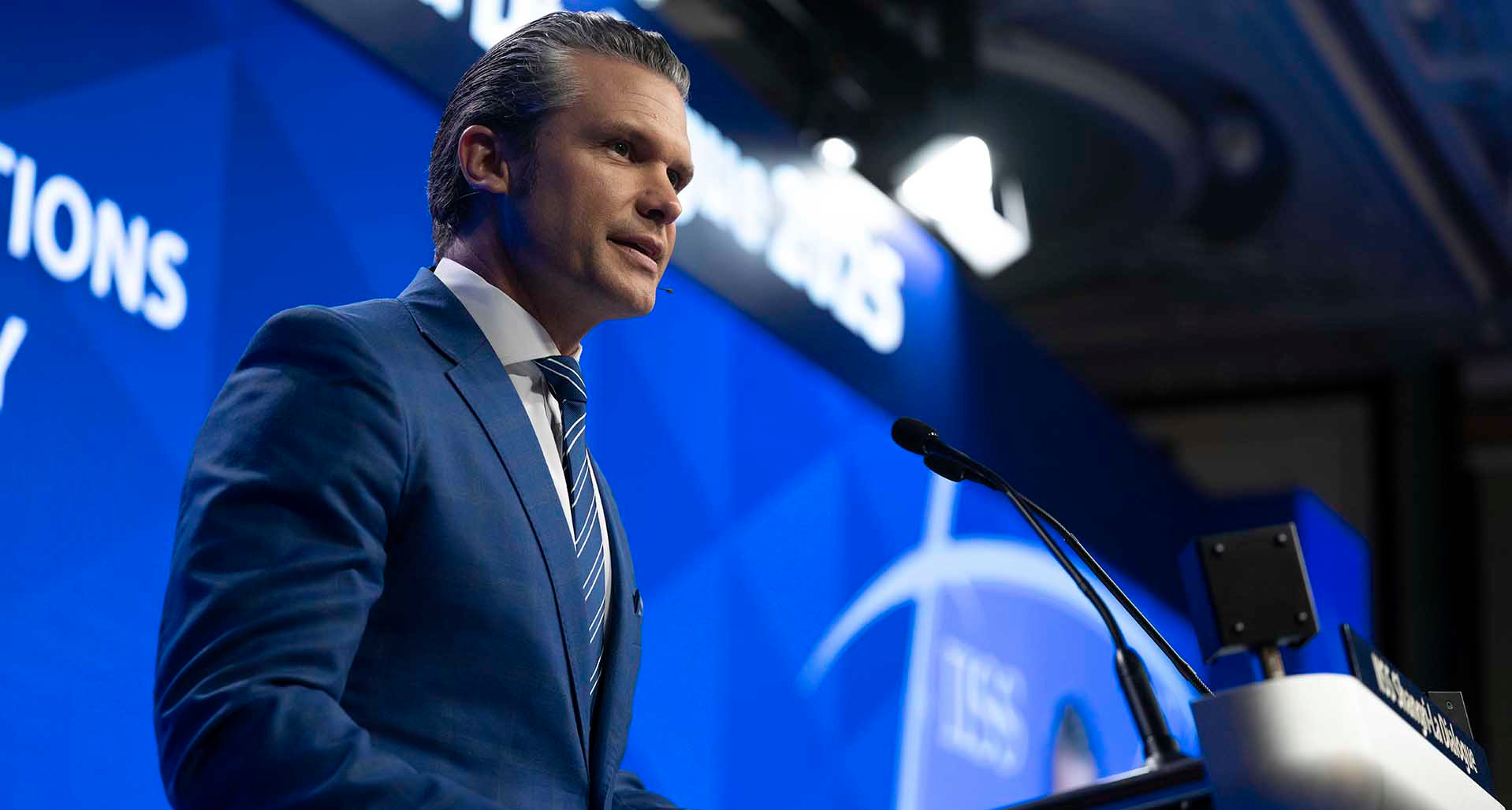
Hegseth praises NATO members for increased defense spending, expectations low for next round of Russia-Ukraine peace talks following weekend attacks, 200 U.S. soldiers stationed in South Korea redeployed to Middle East.
1. Germany’s efforts to ramp up defense spending won it rare praise from the Trump administration over the weekend, when Berlin was held up as an example for Asian countries to follow. Defense Secretary Pete Hegseth, speaking Saturday at a security conference in Singapore, said a push by NATO members to boost defense spending levels to 5% of gross domestic product should be matched by countries in the Pacific. “It’s hard to believe ... I’m saying this,” Hegseth said during a speech at the annual Shangri-La Dialogue. But Asian “allies should look to countries in Europe as a newfound example. NATO members are pledging to spend 5% of their GDP on defense, even Germany.” Hegseth’s comments come ahead of high-stakes talks between President Donald Trump and new German Chancellor Friedrich Merz, who visits Washington on Thursday.
2. Delegations from Russia and Ukraine gathered in Turkey on Monday for their second round of direct peace talks in just over two weeks, although expectations were low for any significant progress on ending the three-year war after a string of major attacks over the weekend. Ukraine said Sunday it launched a spectacular surprise attack on five Russian airbases thousands of kilometers (miles) apart, ranging from air bases close to Moscow to targets in Russia’s Arctic, Siberia, and Far East. The targets were more than 7,000 kilometers (4,300 miles) from Ukraine. More than 40 Russian warplanes were destroyed, Ukraine claimed, in what Ukrainian President Volodymyr Zelenskyy called a “brilliant operation” that involved more than a year of planning.
3. About 200 U.S. troops based in South Korea have been temporarily redeployed to the Middle East, according to a South Korean military official cited in a local news report. The soldiers were part of a Patriot missile-defense unit stationed in South Korea and deployed to an undisclosed location the Middle East last month, the Ministry of National Defense official told South Korean broadcast KBS for a report Friday. The official spoke on condition of anonymity, a common practice for government sources in the South. The South Korean defense ministry referred questions to U.S. Forces Korea, which oversees approximately 28,500 American troops on the peninsula. In an email Monday, USFK spokesman David Kim said the command “maintains a ready, capable and lethal force” but declined to provide further details, citing operational security.
4. China on Sunday denounced U.S. Defense Secretary Pete Hegseth for calling the Asian country a threat, accusing him of touting a Cold War mentality as tensions between Washington and Beijing further escalate. The foreign ministry said Hegseth had vilified Beijing with defamatory allegations the previous day at the Shangri-La Dialogue, a global security conference. The statement also accused the United States of inciting conflict and confrontation in the region. “Hegseth deliberately ignored the call for peace and development by countries in the region, and instead touted the Cold War mentality for bloc confrontation,” it said, referring to the post-World War II rivalry between the U.S. and the former Soviet Union. “No country in the world deserves to be called a hegemonic power other than the U.S. itself,” it said, alleging that Washington is also undermining peace and stability in the Asia-Pacific.
5. Congressional appropriators will unveil their first draft of the fiscal 2026 federal budget this week, with a House committee mark-up of planned funding for the Department of Veterans Affairs and military construction projects. The VA-Milcon measure is typically less contentious than other sections of the budget, but will likely still feature several points of conflict between Republican and Democratic lawmakers. VA leaders have proposed steep cuts in department staffing next fiscal year, but have not detailed the scope and costs of those plans. The House Appropriations Committee’s initial work on next year’s budget will come before White House officials have unveiled their full federal spending request for fiscal 2026. Last month, officials presented lawmakers with a “skinny” budget roughly outlining funding request parameters for each department, but a more detailed budget plan is expected out in the coming weeks.
- Security

